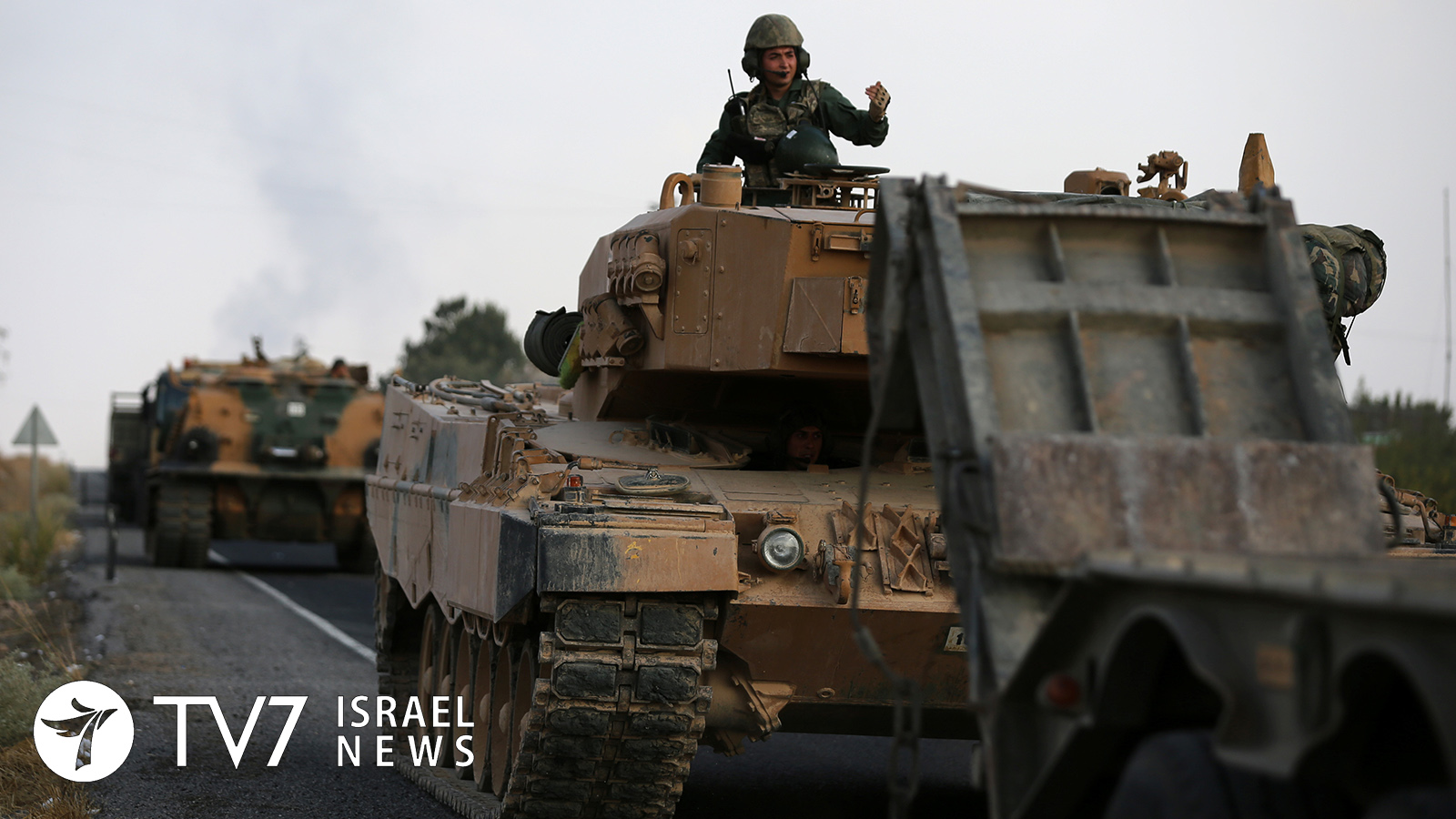Turkish Recep Tayyip President Erdogan told reporters that Ankara would resume the military offensive in Syria with greater determination unless the United States fulfills its pledge to secure a complete withdrawal of Kurdish forces. The Turkish leader said “Our institutions closely monitor the situation in the field. If the promises given to us by America are not kept, we will continue our operation from where it left off, this time with a much bigger determination.”
President Erdogan also voiced anger over an Iranian condemnation of Turkey’s military operation in Syria, saying that Tehran should silence any “dissonant voices” that are directed toward Ankara. President Erdogan stated “Unfortunately, there are some dissonant voices coming from Iran. Not from (Iranian President) Mr. (Hassan) Rouhani. Rather than close working partners of Mr. Rouhani, there are some dissonant voice coming. They should have silenced these, starting with Mr. Rouhani and this seriously annoys me and my work colleagues.”
President Erdogan referred to an official statement by Iranian Foreign Ministry spokesman Abbas Mousavi, who during a press briefing broadcast live on state television stressed that Tehran is “against Ankara’s establishing of military posts in Syria.” Instead, the Islamic Republic’s Foreign ministry spokesman urged Turkey to resolve its issues “by diplomatic means,” while emphasizing that “Syria’s integrity should be respected.”
Meanwhile in Washington U.S. President Donald Trump warned that “if Iran does something,” the United States may be forced to “hit” the Islamic Republic like it never was hit before. During a cabinet meeting at the White House, President Trump did not elaborate on what “something” may mean but underscored his effort to get the United States out of what he referred to in several occasions as the ‘endless wars.’ He said “I’m trying to get out of wars – we may have to get in wars, too, okay? We may have to get in wars. We’re better prepared than we’ve ever been. If Iran does something, they’ll be hit like they’ve never been hit before. I mean we have things that we’re looking at.”
When the U.S. President was asked by a reporter if he plans to maintain a limited number of troops in Syria, despite his declared intention to return all U.S. troops back home; the American leader replied, “Well, we don’t think it’s going to be necessary, I don’t want to leave troops there, it’s very dangerous there. You know, we had 28 troops as it turned out. People said 50, it was 28. And you had an army on both sides of those troops, those troops would have been wiped out. I don’t think it’s necessary, other than that we secure the oil in a little different section, but we did secure the oil. And the other reason, region, is that we’ve been asked by Israel and Jordan to leave a small number of troops is a totally different section of Syria – near Jordan, and close to Israel. And that’s a totally different section, that’s a totally different mindset. So, we have a small group there and we’ve secured the oil.”
With regard to the oil installations, President Trump said he plans to work something out with the Kurds so that they will incoming revenue – but underscored Washington’s plan to keep the oil in Syria. According to Trump “We’ve secured the oil. If you remember, I didn’t want to go into Iraq. I was a civilian, so I didn’t have any power over it, but I always speaking against going into Iraq. Not a great decision, but I always said, ‘if you’re going in, keep the oil.’ Same thing here. Keep the oil. We want to keep the oil. And we’ll work something out with the Kurds so that they have some money, they have some cash flow. Maybe we’ll get big oil companies to go in and do it properly. But they’ll have some cash flow which they basically don’t have right now. Everybody fighting. Not a big oil area, but everybody’s fighting over whatever there is.”
On the topic of the Kurdish-led Syrian Democratic Forces, Trump rejected claims of abandoning Washington’s long-time partners. The American leader said “We’re working with the Kurds. Good relationship with the Kurds. But we never agreed to protect the Kurds. We fought with them for three and a half to four years, we never agreed to protect the Kurds for the rest of their lives.” / “Where is an agreement that said we have to stay in the Middle East for the rest of humanity, for the rest of civilization, to protect the Kurds? It never said that. And we have protected them. We’ve taken very good care of them.”
